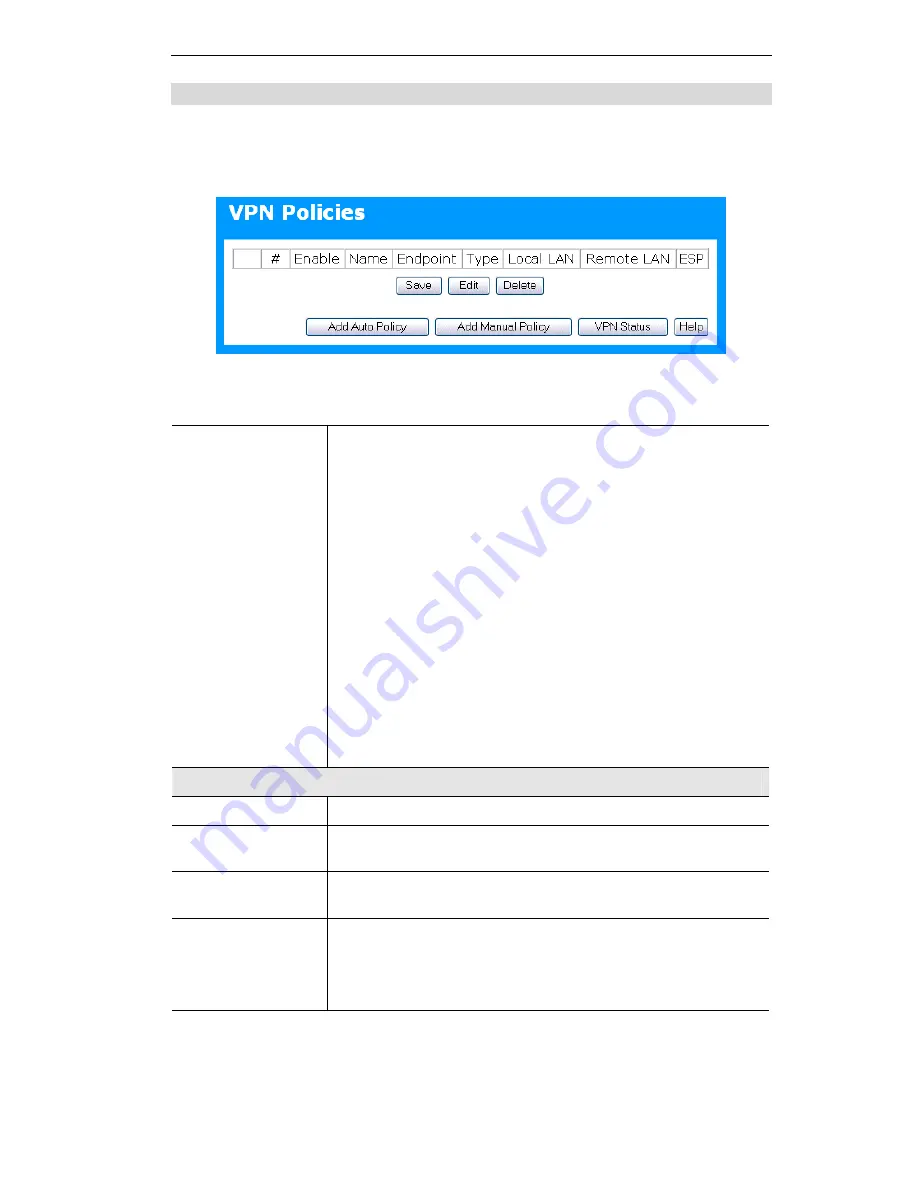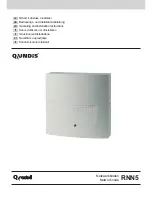
ADSL2/2+ Broadband Router User Guide
VPN Policies Screen
This screen is displayed when you select
VPN
on the
Advanced
menu. It allows you to create,
modify and manage your VPN Policies.
If you have not created any policies, the Policy Table will be empty.
Figure 43: VPN Policies Screen
Data - VPN Policies Screen
Policy Table
The Policy Table contains the following data
•
Enable
- Use this checkbox to Enable or Disable a Policy as
required. Click "Save" after making any changes.
•
Name
- Each policy is given a unique name to identify it. This
name is not known to the remote VPN endpoint; it is used only
to assist managing your policies.
•
Endpoint
- The address of the remote VPN endpoint.
•
Type
- The Type is "Auto" or "Manual" as explained above.
•
Local LAN
- IP address or subnet on your local LAN. Traffic
must be from (or to) these addresses to be covered by this
policy.
•
Remote LAN
- IP address or subnet on the remote LAN.
Traffic must be to (or from) these addresses to be covered by
this policy.
•
ESP
- ESP (Encapsulating Security Payload) encryption
protocol used for the VPN data.
Buttons
Save
Save any changes to the "Enable" setting for each policy.
Edit
Edit (modify) the selected policy. (Select a policy by clicking on
the radio button.)
Delete
Delete the selected policy. (Select a policy by clicking on the radio
button.)
Add Auto Policy
Change to the input screen for an "Auto" policy. See the following
section for details.
When the new policy is saved, it will appear in the bottom row of
the Policy Table.
58
















































